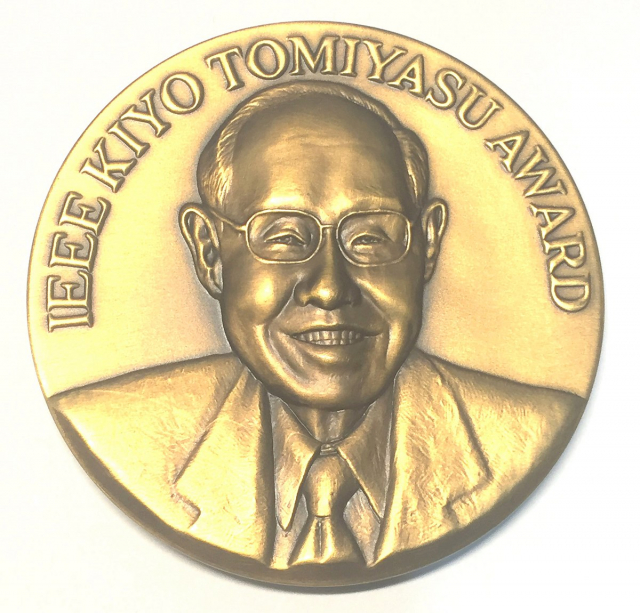Professor Banerjee Selected as the Recipient of the 2015 IEEE Kiyo Tomiyasu Award
Kaustav Banerjee receives 2015 IEEE Kiyo Tomiyasu Technical Field Award.
Dr. Banerjee, alongside with Dr. Vivek Subramanian were awarded the 2015 IEEE Kiyo Tomiyasu Technical Field Award.
The IEEE Kiyo Tomiyasu Award is a Technical Field Award established by the IEEE Board of Directors in 2001. It is presented for outstanding early to mid-career contributions to technologies holding the promise of innovative applications and is one of the most prestigious IEEE awards that one can receive during their career. The prize is sponsored by Dr. Kiyo Tomiyasu, the IEEE Geoscience and Remote Sensing Society, and the IEEE Microwave Theory and Techniques Society (MTT).
IEEE committee released the following statement after announcing the 2015 IEEE Kiyo Tomiyasu Award:
Kaustav Banerjee’s and Vivek Subramanian’s pioneering use of nanomaterials and radical innovations in devices, interconnects, circuits, and design methods for overcoming power, thermal, and other fundamental challenges in both nanoscale integrated circuits (ICs) and printed electronics have been crucial to the continued scaling of electronic devices, as well as increasing reliability and lowering costs of ICs and large-area printed/flexible electronics. Prof. Banerjee is considered one of the key visionaries behind three-dimensional (3D) IC technology being employed by the semiconductor industry for continued scaling and integration beyond Moore’s law, as well as the pioneer behind thermal-aware design methods and tools used in the IC design industry. Prof. Subramanian’s innovations to technology have provided pathways for 3D IC fabrication via demonstration of 3D nonvolatile memory and have also driven advances in fabrication techniques for large-area and flexible systems such as displays and RFID tags. Their work is also driving changes in chip architecture, circuit design, design automation, and chip packaging/cooling as well as physical aspects of wafer and display fabrication and interconnection structures. Profs. Banerjee and Subramanian have also made innovative contributions to the development of low-power and low-cost electronic noses and biosensors.
